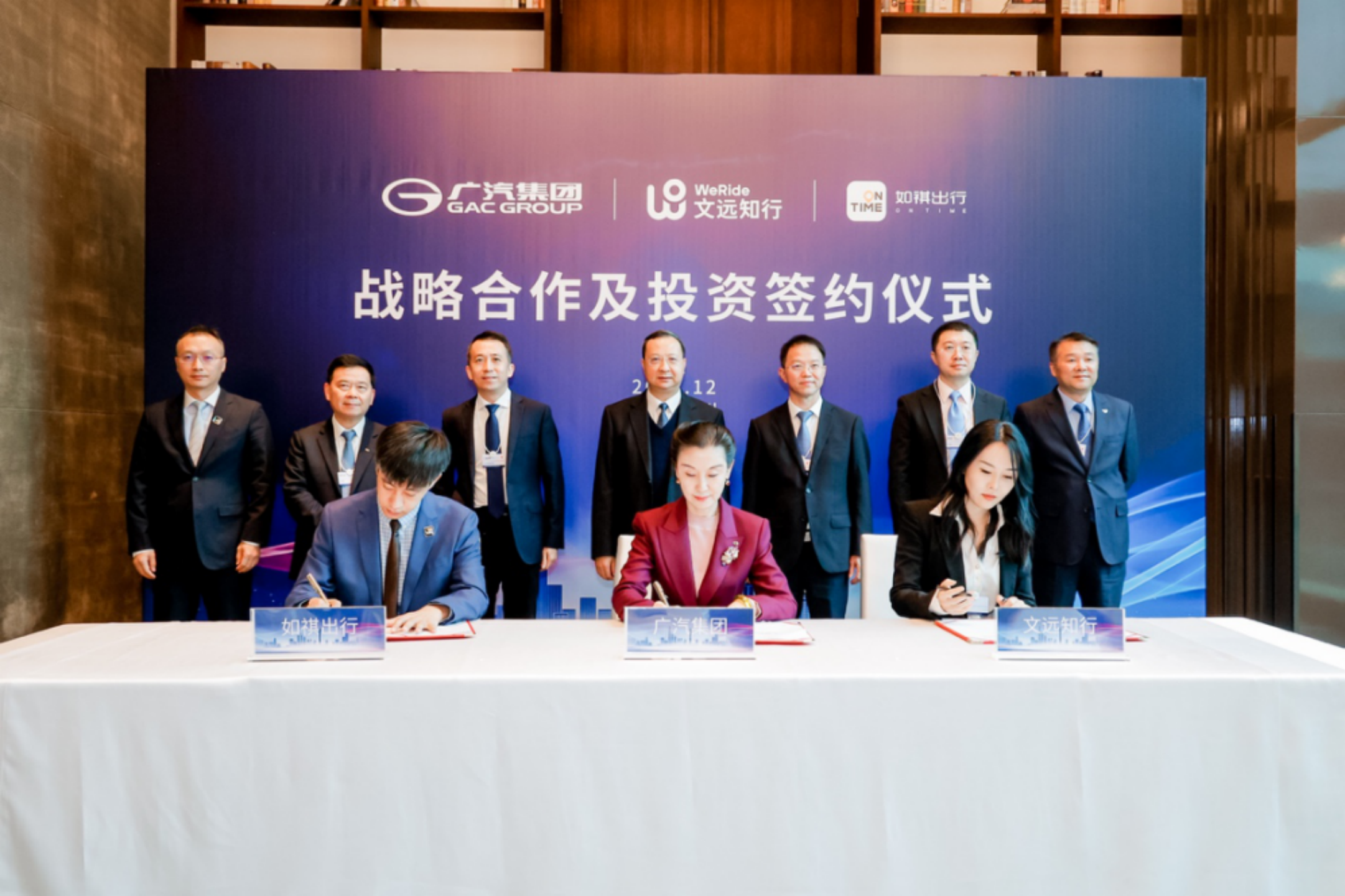Today, Wenyuan Zhixing (WeRide) held a strategic cooperation and investment signing ceremony with Guangzhou Automobile Group and Ruyi Chuxing during the World Economic Forum on Future of Mobility & Travel in China.
According to the strategic cooperation agreement, the three parties will use Guangzhou Automobile Group’s vehicle platform and Wenyuan Zhixing’s L4 level autonomous driving technology and operation experience to jointly promote the iteration of autonomous driving technology and the production of Robotaxi vehicles, and to achieve large-scale operation of Robotaxi with Ruyi Chuxing as the operating carrier.
At the conference, Wenyuan Zhixing officially announced its strategic investment in Ruyi Chuxing, making it the world’s first “autonomous driving startup” to invest in a “transportation platform.”
Not long ago, WeRide Go, Wenyuan Zhixing’s autonomous driving transportation platform, announced that it had received strategic investment from Guangzhou Automobile Group. The two sides plan to establish a fleet of tens of thousands of Robotaxi vehicles in the next few years, and radiate this business to the rest of China, with the core in the Guangdong-Hong Kong-Macau Greater Bay Area.
It is reported that as early as 2018, Guangzhou Automobile Group and Wenyuan Zhixing cooperated to launch the first Robotaxi in China and carried out trial operation in Guangzhou. In November 2019, they started the first Robotaxi service open to the public in China. In September 2021, Wenyuan Zhixing and its partners jointly launched the first commercial pilot operation of China’s first Robovan.
At the 2021 Guangzhou International Auto Show, Ruyi Chuxing and Wenyuan Zhixing jointly exhibited a Robotaxi equipped with the latest Wenyuan Zhixing sensor suite, WeRide Sensor Suite 4.0, and created the first open autonomous driving test ride project in the history of the Guangzhou Auto Show.
In addition to Wenyuan Zhixing, Baidu Apollo Robotaxi has been open for public testing in Beijing since October 2020. Pony.ai, Auto X, Xiangdao Robotaxi, and Didi’s autonomous driving are also testing with the public.
To achieve L4 level autonomous driving, two things need to be done: first, the algorithm needs to be good enough, and second, the driving mileage needs to be high enough. Either one of these two items implies high cost investment. How to obtain low-cost road test data is also a problem that L4 level autonomous driving companies need to urgently address.With its strategic investment in Ruqi Car Service, Wenyan Zhixing will implement a data feedback loop for Robotaxi technology and operation. The massive data from the C-end travel service provider means that Wenyan Zhixing can reduce data collection costs, lower the error rate in extreme scenarios, provide a better experience, and solve the “chicken-and-egg” problem currently faced by players in L4-level automated driving.
The Robotaxi market in China is currently in a state of intense competition, and for automated driving companies facing a huge gap between levels L2 and L4, making friends and opening up more roads may be the most crucial thing at this stage.
This article is a translation by ChatGPT of a Chinese report from 42HOW. If you have any questions about it, please email bd@42how.com.
